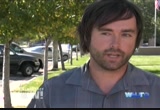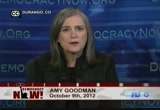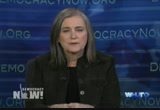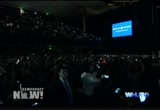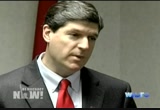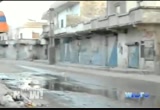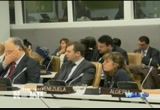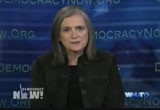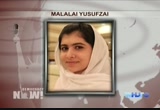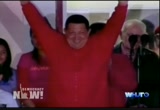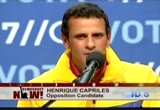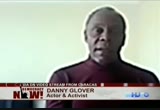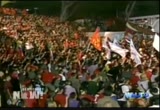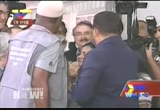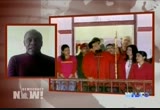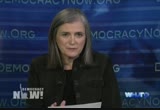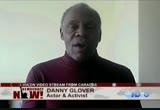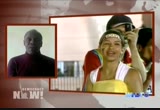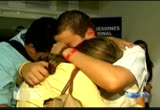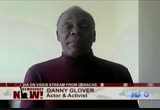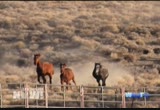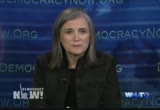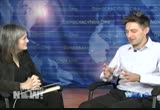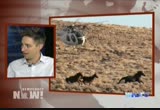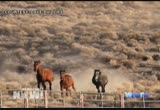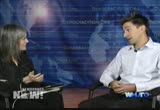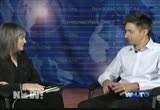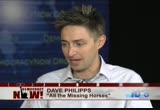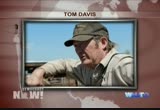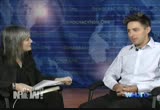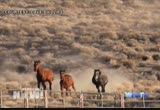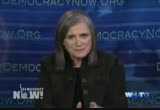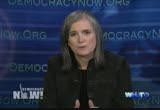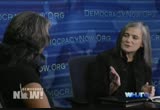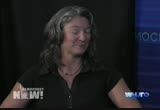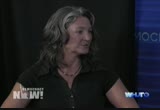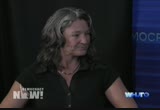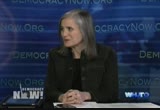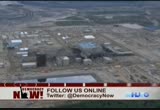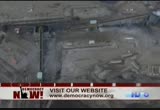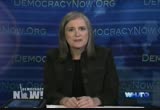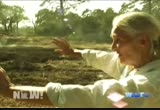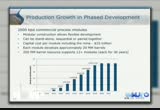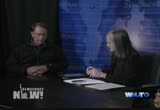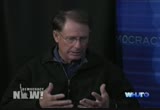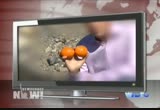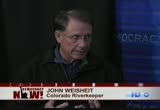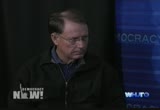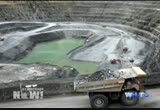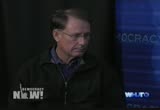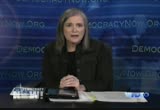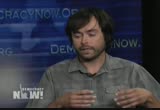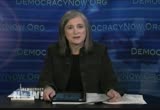tv Democracy Now WHUT October 9, 2012 6:00pm-7:00pm EDT
6:00 pm
10/09/12 10/09/12 [captioning made possible by democracy now!] >> on the road in durango, colorado, this is "democracy now!" >> to those who promote hate, to those to promote social poison, to those who are trying to deny all the good things that happen in venezuela, i invite them to dialogue, to debate, and to work together for venezuela. >> venezuelan president hugo chávez won his fourth presidential election in a race seen as the strongest challenge yet. we will go to caracas to speak with actor and activist danny
6:01 pm
glover who monitored the election. then as protests mount over a tar sands oil pipeline from canada to texas, we're just hours from what could be the first tar sands strip mine in the united states. >> many people know about the tar sands in alberta, canada, but they do not know it is an imminent threat here. activists have been working hard for the last two years to stop the keystone xl pipeline, with some good success. there is still a lot of action surrounding that, but we have a chance right now to stop this project through mobilizing. >> we will get an update from two utah residents. then we will speak with a community radio activist from here in durango who was diagnosed with cancer. >> cancer and without insurance. a new program created by obamacare. [applause]
6:02 pm
>> what is this little known program? first, "all the missing horses: what happened to the wild horses tom davis bought from the gov't?" all of that and more coming up. this is "democracy now!," democracynow.org, the war and peace report. i'm amy goodman. we are broadcasting from durango, colorado. republican presidential candidate mitt romney has overtaken president obama in a new nation poll in the aftermath of their first debate last week. the pew research center has romney leading obama by four points among likely voters after trailing by 8% last month. the two are tied among registered voters at 46%, obama's lowest mark in the people in over a year. on monday, romney delivered a speech attacking president obama's form policy, the subject of their next debate in one week.
6:03 pm
>> i know the president hopes for a safer, freer, and more prosperous middle east, allied with us. i share this hope, but hope is not a strategy. we cannot support our friends and defeat our enemies in the middle east when our words are not backed up by deeds. when our defense spending is being deeply cut, when we have no trade agenda to speak of. and the perception of our strategy is now one of partnership, but of passivity. >> the presidential candidate last of it will be on foreign policy. mitt romney was speaking at the virginia military institute. campaign later that day in san francisco, president obama said romney is wrong to oppose the winding down of the iraq war. >> governor romney has a different view. he said it is tragic to end the war in iraq. he doubled down that believe in a speech today, saying it was a mistake. i disagree.
6:04 pm
bringing our troops home was the right thing to do. [applause] every great american who wears a uniform of this country should know that as long as i am commander in chief, we will sustain the strongest military the world has ever known. and when our troops take off their uniforms, we will serve them as well as they have served us. >> during his remarks, obama also addressed his debate performance in denver last week, saying supporters had criticized him for being too nice. >> after the debate i had a bunch of folks say, "don't be so nice." [applause] but i want everyone to understand something. what was being presented wasn't leadership, but salesmanship. >> a rare form of fungal meningitis linked to steroid injections has killed at least
6:05 pm
eight people in the u.s. and sickened more than 100. officials say as many as 13,000 people in 23 states have received injections that may put them at risk. half the confirmed deaths have been in tennessee. a hospital announced the death of another patient late monday, potentially bringing the national debt toll to nine. the outbreak has brought attention to an apparent gap in the regulation of compounding pharmacies that produce medications from drug ingredients. the tennessee health commissioner warned commissioners to avoid recalled drugs from the new england compounding center. >> we don't really know at this point in time where this materials are. but there is no evidence at this time that any of those materials are contaminated. they're being recalled for precaution. that having been said, anyone in possession of materials that say new england, having center on the label should not use them.
6:06 pm
>> nigerian soldiers angered by the debt -- deaths have shot and killed 30. the journalists of the word no signs the dead were militants. soldiers set fire to dozens of homes and businesses. one nigerian soldier said the attack came in response to a bombing earlier in the day that killed a lieutenant. the nigerian president is pledging aid to tens of thousands of nigerians displaced by the country's worst flooding in 50 years. the red cross said last week the floods have killed at least 148 people. violence has broken out between israel and palestinian militants after an israeli military strike in the gaza strip. on monday, palestinians fired rockets at southern israel after an israeli attack killed one person and wounded nine others, including dr. children. it also damaged a mosque and water tower.
6:07 pm
a civilian tribunal formed to examine is really violations of international law in the occupied territories presented its findings to a u.n. panel on monday after a weekend of testimony in new york. the russell tribunal on palestine was created in 2009 to bring attention to the responsibility other states bear for israel's violations of international all. presenting a summary, two of the jurists said israeli violations were impossible without u.s. government backing. >> the tribunal finds that israel's ongoing colonial settlement expansion, its racial separatism policies, as well as its violent militarism would not be possible without the united states economic military and diplomatic support.
6:08 pm
>> the russell tribunal session here in new york will give us the opportunity to further persuade people who believe in justice and equality and peace in this country that they should join the campaign for solidarity with palestinian people and palestinian freedom. the ousted president mohamed nasheed after he ignored a summons to appear in court. he is facing charges of illegally ordering the arrest of a judge appointed by gayoom, who ruled the maldives for 30 years before nasheed became its first democratically elected president in 2008. nasheed was ousted earlier this year in what he described as a coup at gunpoint by gayoom's supporters. nasheed is well known internationally for his activism on the issue of global warming, which he says threatens the survival of his small island
6:09 pm
country. on monday, supporters of nasheed said he was pepper sprayed and dragged away by police to jail. to see our interview with president nasheed, go to democracynow.org. in pakistan, a 14-year-old who campaigned for the education rights of girls is undergoing medical treatment after being shot. malalai yusufzai was on her way home from school in an area of northwest pakistan when an unidentified man stopped the vehicle is traveling in. one man reportedly ast malalai yusufzai by name, then shot her in the head and neck. another girl was shot in the hand. malalai yusufzai again international prominence after blogging for the bbc about life under the taliban. those are some of the headlines. this is "democracy now!," democracynow.org, the war and peace report. i'm amy goodman. we're on the road in durango, colorado on our 100-city tour. first return to venezuela or president hugo chávez has won
6:10 pm
his fourth presidential election, defeating challenger henrique capriles in a race widely seen as chávez's strongest challenge since his first victory in 1998. chávez 154% of the vote, with henrique capriles gaining just under 45%. tens of thousands celebrated in the streets of the capital caracas after the results were announced. chávez held a replica of the sword of independence hero simon boulevard during the victory celebration. at a rally of the presidential chalice, chávez reached out to the political opposition and called for unity among venezuelans. >> to those to promote hate, to those to promote social poison, to those or always tried to deny all the good things that happen in venezuela, i invite him to dialogue, to debate, and to work together for venezuela. for the bulgarian people, for the bolivarian venezuelan.
6:11 pm
that is why i start by sending these greetings to them and extending these two hands and hearts to them, in the name of all of us because we are brothers. >> venezuelan he president hugo chávez speaking after winning another six-year term in office. in his concession speech, henrique capriles urged chávez to recognize the voices of those who voted against him. >> i hope a political movement that has been in power for 14 years understands that almost half the country does not agree with them. -- does not agree with him. i ask for those in power to have respect, recognition of almost half the country. >> to talk more about the significance of the victory of
6:12 pm
chávez, we go to caracas to speak with danny glover, american actor, film director, and political activist. he has been in venezuela as an electoral monitor. welcome to "democracy now!" can you tell us what you have observed in this for the election of president chávez? >> first of all, thank you for having me on the show, amy. i had the opportunity to which is something very extraordinary in this hemisphere, and certainly in venezuela an election that was very clean, an election that was -- where people had great enthusiasm on both sides of the prospect of another six years. i went from polling stations, several of them, and talk to people through the interpreter about what they felt about the voting process itself.
6:13 pm
the voting process is very meticulous. at the same time, very surreal. you are fingerprinted and then you vote, and then it is vetted through a process, including a mark on your hand, a purple mark on your hand. i witnessed this and the incredible enthusiasm. it is on a sunday. it takes place on sunday. there is not a great deal of traffic on the streets. they do not sell liquor on sunday as a result of the voting process as well. >> danny glover, why did you go down to venezuela? talk about where you have spent your time. >> the first thing, i was
6:14 pm
invited by the electoral commission to come and be here to be a monitor. but my relationship with venezuela has been one in over the last eight years. in 2001, and it african descendants in the region and had great -- and that african descent in the region and had discussions about changes in the region, promoting more democracy, and perhaps understanding their own involvement. we began to form these relationships which culminated in the coming to venezuela in 2004, meeting with venezuelan afro descendants there, and also met with the president. he expressed his -- expressed
6:15 pm
they had not included within the 1990 constitution, took into consideration the aspirations of afro descendants. since then, has promoted programs in which they have improved the lives of afro descendants. during the day, we spend time here in caracas. on monday, we went to the community where he is the position of the less the opposition is governor of. we were understanding the real narrative around what this election is to people, poor people, people affected by the changes during the time of this regime.
6:16 pm
[indiscernible] people talked about increase health care access, also increased education, also the building of cooperatives around chocolate, first of all, and also around bananas. they expressed pride, and a sense of relief that president chavez has been reelected. >> danny glover, i want to ask about the, in a presidential candidate mitt romney a day after hugo chávez won re- election, the republican nominee criticize the obama administration for allowing chavez to expand his influence in the region. >> and our neighbors want to resist the failed ideology of hugo chávez and the castro brothers and deepen ties with the united states on trade and energy and security, but in all these places, just as in the
6:17 pm
middle east, the question is asked -- where does america stand? >> that was mitt romney. danny glover, your response? >> poverty in the area is 40%, near 40% over the last 13 years. in venezuela, and all of the region. part of it is associated with the integration. once you get out into the fields, you begin to talk with people who have worked their way and not with cash handouts, but worked their way out of poverty. that is the real story of achievement, not only in venezuela, the other places as well. >> finally, danny, you have spent time with president chavez. were you with him when he voted? how is his health? he has been treated --
6:18 pm
>> i saw someone, and i have not seen pictures of president chávez over this ordeal in terms of his health and dealing with his cancer, but i just saw someone very energized and a little bit heavier than i remembered him from the last time i was here. i think that was in new york about three years ago. he seems to be very excited and energized and certainly, those of us who were part of the delegation, it in his voting station, or certainly taken by his vigor. warning,que capriles' though he conceded the election, saying that chávez should recognize the voices of those who voted against him, danny glover? >> it seems as if, quite frankly, 40% of the vote or 44%
6:19 pm
of the vote is quite substantial. the question becomes, and this is for others to think about and write about, what group of those were supportive of the agenda on the right as opposed to those who wanted chávez specifically out of office? that is something very concerning. there were 80% of the population that voted, i think some of us would wish that or least a portion that within our election. but 80% of people voted in this election. people thought it was a turning point. it was a turning point for what could be administration -- with the administration has attempted to do over the last 13 years. the question as i listen to his own remarks on his concession speech, the fact that he kept
6:20 pm
pointing to the fact that there was a large number of people, nearly half the population as he expressed it, that voted against what the regime has had. simply, in looking at the platform, certainly, the anti- poverty platform had been adopted over the last 13 years. no one would suggest that these platforms or the programs that failed for greater access to health care, education, the number of young people in school and university has doubled over that time. no one would argue with that. so it seems as if the people [indiscernible] the opposition, and this is my generalization, in some sense, may feel they are building toward an eventual turn of
6:21 pm
events that would allow [indiscernible] sense of what change should be or what prosperity should be, and where there should be. >> danny glover, thank you very much. >> in the last 13 years, the state has been able to take over the public sector. primarily, the resources in oil, which they've not been able to use to eradicate poverty. those are real things. i think because of the situation in the region itself and the integration of the region, we may find the president chávez and those who reelected who really turnout, creed a new page in history of this region. >> danny glover, thank you for
6:22 pm
being with us, american actor, director, and activist. he was in venezuela as an election monitor, speaking to us from caracas. this is "democracy now!," democracynow.org, the war and peace report. i'm amy goodman. when we come back, all the missin"all the missing horses: t happened to the wild horses tom davis bought from the gov't?" stay with us. ♪ [music break]
6:23 pm
>> this is "democracy now!," democracynow.org, the war and peace report. i'm amy goodman. we continue the western leg of our 100 us cities silenced majority to wear. we turn now to an investigation that tracks what happens to many of the wild horses rounded up in this region by the bureau of land management. dave phillips reports for the investigative news outlet propublica a little known livestock hauler is buying almost all of the horses the bureau removes from the wild,
6:24 pm
and a program meant to maintain a sustainable balance among the herds like all buyers in the program, tom davis signs a contract promising the animals will not be slaughtered and insists he finds them good homes. but davis is a longtime advocate of horse slaughter and he refuses to disclose where the horses end up. animal welfare advocates fear the horses he buys are being sent to the killing floor. for more, we turn to my interview with dave phillips. i spoke to him last run in colorado springs, and i began by asking him what happened to these wild horses? tolet's just take a second appreciate the fact there are wild horses out there right now, thousands of wild horses in the west that are still part of the old wild west that never got hand. these are courses that are protected by the government, much like an endangered species. what happened to them? the government has taken some of them off the land and tries to sell them. it says repeatedly,
6:25 pm
emphatically, that is so careful of who it sells them to, that's they know for a fact that none are slaughtered or even sold to people who might resell them to slaughter. what we found in our investigation is they never checked up on any of these claims, and are selling to this one guy, tom davis, they have sold him 1700 horses over the past three years. >> who has sold them? >> the bureau of land management, essentially, the federal government has sold these courses they take off the range to this one buyer. where they go? the government does not know and tom davis is not telling. evidence suggests that he is sending them to mexico to slaughter. >> sending the horses how to mexico? >> that is a tricky question to answer. he sends them down to texas, which is a very good place to sell horses without leaving a paper trail. perhaps then someone else exports them. we were unable to get export
6:26 pm
documents from the da. within mexico is this big industry run mostly by european companies that takes american horses, butcher's them, then ships them to europe to be sold as steaks. >> wild horse meat? >> overwhelmingly, these are old, unused forces that no one wants and sold the slaughter. but what we found is there are horses, wild horses, better illegally slipping into the system. people are selling the in and the government's policing practices are so inadequate that not only do they never catch these guys, they don't even say it is a problem. >> where is horse meat the delicacy? >> you would be surprised. you can go to japan and have horse sushi. >> horse sushi? >> absolutely. courses are also turned into
6:27 pm
hair weaves, mattress pads. northern europe, belgium, france is where the market for this meeting is. >> who tipped off to this story, dave phillips. >> i was in the middle of nevada and and as smart horse advocate named laura lee said, you should look at the horse field program and see if anything is slipping out of there, because they will not tell us. we of asked the bureau of land management and it will not give us a straight answer. so we started digging that documents using the freedom of information act. what should was so start immediately. most of the people who are buying horses from the government are buying one or two to be used as a companion animals breed this guy was buying truckloads at a time, sometimes up to 240 horses and
6:28 pm
one purchase. he accounted for 70% of their sales. >> how much is the purchasing them for? >> they only cost $10. >> alive or is costs $10? how much to the way? >> anywhere between 700 pounds to 1,400 pounds. the government spends thousands of dollars to gather these horses, then ship them to tom davis for free. oftentimes the trucking bill is $5,000. >> where is his farm? >> he lives and a beautiful place in colorado, very rural. he is literally down the road from ken salazar, the secretary of the interior, and has a long distance relationship with him. >> what the mean? >> he has often hauled cattle for salazar, who is a rancher. they know each other and have known each other for decades.
6:29 pm
>> does ken salazar know about this? did you attempt to interview him? >> i attempted multiple times and never got a word out of him. however, i do know that tom davis, the buyer, wanted to start his own horse slaughter plant next to his ranch, and tried to enlist the help of ken salazar paz brother, who is our state department agriculture chief, to try to get him -- >> a former congressman. >> absolutely. john salazar refused saying it was too politically a hot topic, but wished him luck, according to davis. >> $5,000 the u.s. government spends, taxpayer dollars -- >> just for shipping. >> to ship on course to tom davis who buys it for $10. >> it would be a truck load.
6:30 pm
>> it would pay $5,000? >> so let's say the government's total expense is $35,000. he pays $300. >> what could be the justification? >> the blm has been taking excess horses off the range for years. they tried to adopt them out, they get very few takers. they end up contract in private ranchers, mostly in kansas and oklahoma, to be essentially put them up and a horse returned home. this is really, really expensive. >> a horse retirement home? >> the remove so many horses and put them in these retirement homes, that there are more wild horses and retirement homes, 47,000 of them, then they are in the wild. for the blm, they want to try to get rid of these horses because it is so expensive. they just do not have a good way
6:31 pm
to do it. some people suggested to me and my research, it may be the blm is looking the other way and letting as beyer, tom davis, the law because in a way, he is helping them out. he is putting relief on this overloaded system horse storage. >> who could you speak to to learn more about who tom davis is? >> tom davis in many ways is just a roll back, a guy who grew up around horses his old life. he makes his living hauling cattle for people around colorado. he is not a special guy in any sense. he lives in a modest house in a critique remote, impoverished part of the state. for some reason, and our reason that i cannot honestly say, the blm has just decided it is okay to sell him hundreds and
6:32 pm
hundreds of horses and never checked what he's doing with them. there are people with in the wild horse welfare world, people who love to these sources, who have said -- if someone is buying as many horses, there is only one thing he could be doing with them. sending them to slaughter. the blm has responded -- no, no, no, we have checked this guy out. he is above reproach. >> who are the advocates for the horses? >> the advocates for the horses are people who mostly live near these bands of horses in remote places -- nevada, utah, colorado -- who have become captivated by just watching these herds, seeing them roam free. also in cities. they try to watch the blm closely, advocate for the course is to be treated better than they are, but they have had a
6:33 pm
lot of trouble trying to figure out with the sale program is doing because the blm is been very secretive. they're treating it like they're selling chemical weapons, when it is basically just livestock. >> dave phillips, we are broadcasting from durango on tuesday. talk about the western slope of colorado, where the wild horses rome. >> western colorado has been -- has a beautiful horse herds up and down the western border. i think there are quite to recognized herds. genetic tests have been done on many of these horses. while forces are in excess of anything that ever got away from anybody. -- wild horses are excess of anything that ever got away from anybody. they have old blood in them that suggests -- these are still remnants left over from the ute
6:34 pm
indians, who once controlled all of colorado. they are still there for it to a large extent, they are still how they were 300 years ago. >> you are turning this into a book, your research. what captivated you about the wild horses and what is happening to them? >> i started with the stark, surprising figure that there are more wild horses in captivity than in the wild. there is no other animal like that in the world. here is an animal that is wild, but about wildlife. it is feral. it is sort of an american symbol, yet not a native. in a way, is a lot like we are and shares a lot of our history. mixed up immigrants out here try
6:35 pm
to find our place within the landscape. and it has a deep history that is tied to us. there were once maybe 2 million wild horses in the west. herds that would for miles and were only rivaled by the buffalo. and to a large extent, they were annihilated like the buffalo were. they were shipped east by the trainload and turn into baseball covers. they were ground up and turned into fertilizer and chicken feed until the 1970's, there were only a fraction left. then we protected them. since then, they have started to come back. now there are 35,000 or so. it was an interesting issue to me because now they have to find their place as part of the new west in the old west. how do we as people work together to try to find a sustainable way to make room for both us native wildlife and this
6:36 pm
interesting part of our heritage? >> that was reporter dave phillips. i spoke with him on fraud in colorado springs about his investigation for propublica titled, "all the missing horses: what happened to the wild horses tom davis bought from the gov't?" we will have a link to it on our website democracynow.org. we're broadcasting from durango, colorado, today, where there are wild horses on the western slope. we are broadcasting from the ballantine media center, named after the publisher of the four regional newspapers here. first lady michelle obama is scheduled to speak tomorrow here at fort lewis college at 6:00 in the afternoon as the democratic campaign seeks to woo voters in the swing set of colorado. today we'll speak with a woman who was chosen to introduce president obama when he spoke in
6:37 pm
denver in may. she is tami graham, a fifth generation coloradoan and professional mediator. when she was diagnosed with stage one year in cancer, she knew she could not afford the tens of thousands of dollars to for treatment since she did not have health insurance. that is when someone mentioned the high-risk pools established by obama's affordable care act. the insurance helped pay for her hysterectomy as well as follow- up care. after tami graham responded to the campaign's facebook post seeking personal expenses about the affordable care act, she was invited to introduce president obama. >> cancer and without insurance. found out about a new program critic by obamacare -- created by obamacare. [applause] [indiscernible] >> that was tami graham
6:38 pm
introducing president obama in may. she also happens to have been, for years, the general manager of the committee ready station here in durango that airs "democracy now!" and is joining us now to talk more about this underreported part of president obama's health care plan that is designed as a bridge for people with pre-existing conditions who cannot obtain health insurance coverage. we welcome you to "democracy now!" >> it is great to be here. >> an is great to see you in good health. would always amazes me, because i have friends to discover this program, more frightening than not having a program that you can actually get insurance without or with a pre-existing condition is that there is such a program of people don't know about it. >> i was amazed and the medical industry, not one person i talked to in the last year actually knew about this pre- existing conditions plant
6:39 pm
insurance program. >> in new york is called the bridge program. >> an colorado, it is called "getting us covered." no one knew about it but i thought if anybody knew, it would be the medical industry. >> tell us what happened. >> i was diagnosed a year ago september. i am very healthy, 47 years old, did not expect by any means that the cancer diagnosis phone call. however, there i was. i started scrambling to figure out how i was going to pay for the treatment i needed because i did not have health insurance. i am a self-employed. i called my local health department and someone there, bless her soul, knew about the pre-existing conditions plan. she said, "well, you might check this website
6:40 pm
gettinguscovered.org." i was able to find out that i qualified. basically, you just have to have not been covered by insurance for a least six months, to mr. your employer cannot provide you with insurance -- which i'm self-employed -- cannot provide you insurance because of their pre-existing condition. it was fairly easy to qualify and to get it lined up. >> what is interesting i find about this program, while insurance companies are famous for saying no to everything, this one, they accept and what you to get accepted. so even if you are rejected, they encourage you to rewrite a simple form because they get fully reimbursed by the federal government. >> right. i am still kind of surprised i was that easily able to get
6:41 pm
insurance coverage with having a pre-existing condition. you hear about so many people going bankrupt. >> were you able to go for treatment? >> i was able to go to the cu , colorado university, excellent hospital. i did not have to skimp on anything in terms of care or follow-up treatment. >> what has been amazing as this has been in effect for well over a year, but most people in this country have no idea. there is still lists on that if you have a pre-existing condition, you might as well and give up on getting any insurance. >> absolutely. like i said, i am still shocked. like you say, the vast majority of people have no idea that any part of the affordable care act has gone into effect, much less,
6:42 pm
in my opinion, one of the most important parts. >> i want to teach you for being with us, -- i want to thank you for being with us, sending out that alert that could save many people's lives. >> absolutely. it saved mine. i am glad i did not have to stress about getting insurance at a time like that. >> thank you for your work with community radio as well. tami graham fifth generation coloradoan and professional mediator. >> i guess you'll be there when michelle obama comes to town. >> i sure will. >> mitt romney says -- polls show mitt romney is a few points ahead of president obama. when we come back, we look at the tar sands, the well-known star sands pipeline going from alberta down to the gulf of mexico. but what about tar sands right here in the u.s.? we just came back from moab,
6:45 pm
>> this is "democracy now!," democracynow.org, the war and peace report. i'm amy goodman. we're on the road in durango, colorado. with less than 30 days before the election, we turn to look at tar sands oil -- the subject of promises by both major presidential campaigns, even if they avoid the issue of climate change. on monday, paul ryan vowed to approve the keystone pipeline that would run the thick crude oil from canada to the u.s. refineries in taxes. addressing supporters in ohio, he said if elected, romney would approve the pipeline on his first day in office and land president obama for standing in the way of jobs the project would bring. -- and blamed president obama for standing in the way of jobs the project would bring. obama's delayed a final decision on the pipeline until after the november election. but transcanada is already
6:46 pm
clearing the way for its southern leg in taxes. for more than two weeks they've held a tree sit to block its path near winnsboro, texas. on thursday, actress daryl hannah and a 78-year-old east texas farmer were arrested by protesting the clearance her land seized by eminent domain. this is eleanor fairchild speaking as she stared down one of the transcanada possible closers. >> i am mad. this land is my land. it has been our land since 1983. our home is on it. they are going to destroy the woods and also they could destroy the springs. it is just devastating. it also is not very good that the tar sands -- this is not just about my land, but about all of our country. >> as the tar sands blockade
6:47 pm
continues in taxes, -- in texas, we look now at what to be the first actual tar sands and will still strip mining operation in the u.s. not far from moab, utah, the state has already leased land to a canadian energy development company that recently changed its name to u.s. oil sands. the company plans to mine nearly 6,000 acres in an area of unspoiled wilderness that is also the watershed of the colorado river, which provides water to more than 30 million people. activists say chemicals in the mine -- used in the mine could pollute the water that is left free for more we're joined here in durango, colorado -- just a few hours from the proposed site -- by two of the activists working to block the project. john weisheit is a longtime conservation director of living rivers and colorado river keeper, and ashley anderson is founder and director of "before it starts," which is leading the
6:48 pm
fight to stop tar sands drilling in utah. his the former director of peaceful uprisings, a group he founded with activist, to christopher, who understand is listening where he is in prison. i want to start with john weisheit. when people hear tar sands, they think alberta, canada. they may think dirty oil or is there paul ryan, they think jobs. but talk about why you're talking in moab. >> this particular locality is in a high elevation of a plateau, one of the last wild places in utah. it is a huge refuge for elk and deer, and a bit of a watershed. it would also affect the white river and green river. this is an inappropriate
6:49 pm
activity. people are not aware that utah has a lot of tar sands exposed at the surface, easy to get to. this would be a strip mining project. it would completely due forced this plateau, annihilate the vegetation for these animals. once they're done, there would never have any beneficial use whatsoever besides destroy in the watershed. >> where do these tar sands come from? >> the colorado river was a system that did not make to the ocean and used to be a lake. it drained internally. algae and organic materials provided hydrocarbons. >> i want to turn to a clip from a cbs report on the tartheh tar sands project. according to earth energy resources, there's now
6:50 pm
revolutionary clean technology involving, of all things, oranges. >> if you get all of this out of the ground, separate the oil from the sand, and put all the land back where it came from cleanly, that is exactly with the calgary, the behind this project says it can do with a secret formula, incredibly, involving something you can find any grocery store -- oranges >> a recipe they say can keep you talk beautiful while mining for oil. >> the company president says his patent pending process with citrus extract does the unthinkable. it takes oil from the sand, leaving no pools of toxic waste and will not permanently scar the land. >> our long-term environmental
6:51 pm
footprint is almost nil. i can say that with high degree of confidence. >> this company video shows the only byproduct is the sand itself, later used to landscape. >> if we cannot do it, then we will go back to canada. >> john weisheit, can you talk about the citrus solution? >> it is a -- it is, like pine needles make turpentine. this is the solvent the want to mix with hot water to liberate the materials they have strip mined from the plateau. what our concern is, once this chemical liberates the hydrocarbons, it also liberates the nasty chemicals in cancer- producing things with in the processing system which are going into the waste and going
6:52 pm
into unlined pits. with all the broken up sand and rubble and the [indiscernible] the rainwater will percolate in to picking up the chemicals and putting them into the local aquifer and streams and would carry them to the green, colorado, or white rivers depending on where they are located. >> our tar sands act is working on the keystone pipeline aware of what is going on and go up? what you make of what paul ryan says he will jumpstart the keystone pipeline if he were vice-president? >> i think people are aware of what is going on in utah, because it is a mining operation that has begun. there are activists there. it is in litigation. i would like the company to know we are not prevailing in
6:53 pm
the core system. it is highly likely this operation will begin in 2013 for 2014. >> i wanted talk about uranium and uranium mining and uranium milling. please, lay out the story. >> moab used to be called the iranian capital in the world. it was the main economic course in moab in the 1950's and 1960's. it is right next to the colorado river. there was a time when the department of energy was going to cap this mining activity in a place to the colorado river, but thanks to california water managers, we were able to convince the department of energy to move the pile away from the colorado river. but in 1984, the uranium industry fell, prices dropped,
6:54 pm
the government refused to subsidize the industry any further. but there has been a resurgence due to an increase in uranium prices. there are two companies that have actually merged. they're currently using a milling facility about 100 miles south of moab, delete uranium processing facility in the u.s. -- the only uranium processing facilities in the u.s. the >> as we travel on this 100-city tour, we follow the uranium trail from one mine in virginia to another one near green river, utah. later this week we will be in los alamos, the birthplace of the atomic bomb. i want to play a comment from dan chancellor who is running for a seat on the local commission. i met him when i was in telluride. he was talking about a proposed
6:55 pm
uranium mill in paradox, utah. >> we have some development on the valley floor that is at issue. [indiscernible] >> what is it? >> a uranium mill. they're getting ready to put a uranium mill near paradox. >> [indiscernible] >> the economy. typically what happens, they bring people in from other places when the mill closes down. we a people with no sense of community. also, the prevailing winds, straight to telluride, 60 miles away. their high-tech solution to keeping those particles from flowing into our lives is spring water on them. basically, they're taking our water to do it. my father grew up in an area on
6:56 pm
top of [indiscernible] and he died of cancer of 58. >> what type of cancer? >> lung cancer, but the tide is -- the type of cancer is typically associated with radiation. his doctor asked him if he worked in the uranium industry. >> that was dan chancellor, running for a seat on the local san miguel county commission, speaking about this uranium mill in paradox, colorado. he was speaking to us in telluride. john, the significance of this? >> it is on the dolores river bridg. it is basically a river that does not flow anymore. we are partnering with a group and have been able to have this
6:57 pm
under review again. we really don't want to see this. we have a legacy of uranium waste and carnage, and we want -- our communities want this to be out of the way. >> ashley anderson, the activism your in? >> i want to say what we're trying to do is stop the fossil fuel industry in its tracks from spreading the waste. nationally, we need a big movement to help with the way we did with the keystone xl pipeline. that is how we will preserve our future, by making it obsolete. tim will be getting out on october 24 in serving the rest of his sentence from a halfway house. >> and was sentenced for two years? works by the obama
6:58 pm
administration, basically, for disrupting an oil and gas lease option. >> bureau of land management. apraxias, tried to sell off our lands for gas exploration. i don't think we're looking at a good was a presidential candidates for either perot -- a little feature.l >> thank you for being here that does it for our broadcast. democracy now! is looking for feedback from people who appreciate the closed captioning. e-mail your comments to outreach@democracynow.org or mail them to democracy now! p.o. box 693 new york, new york 10013. [captioning made possible by democracy now!]
188 Views
IN COLLECTIONS
WHUT (Howard University Television) Television Archive
Television Archive  Open Access
Open Access  Television Archive News Search Service
Television Archive News Search Service 
Uploaded by TV Archive on

 Live Music Archive
Live Music Archive Librivox Free Audio
Librivox Free Audio Metropolitan Museum
Metropolitan Museum Cleveland Museum of Art
Cleveland Museum of Art Internet Arcade
Internet Arcade Console Living Room
Console Living Room Books to Borrow
Books to Borrow Open Library
Open Library TV News
TV News Understanding 9/11
Understanding 9/11
